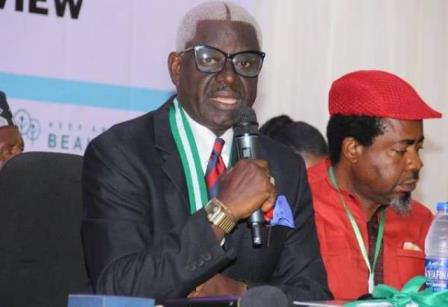
The seventh edition of the public presentation of the State of the Nigerian Environment (STONE) study has revealed that no fewer than 179 million people in Nigeria live in unclean environment.
The STONE 2024 figure is an improvement compared to 183 million recorded in 2023.
The report was signed by Mr Ene Owoh, National Coordinator Clean-Up Nigeria (CUN), an NGO, and made available to the News Agency of Nigeria (NAN) on Friday in Abuja.
The report followed the Cleanest State Champions event tagged “STONE 2024 Unplugged.”
According to Owoh, the indicators used in the study aimed to promote comprehensive environmental policies targeting governments at all levels and citizens.
“The 2024 zonal rating has significant merits; expected to improve Nigeria’s national cleanliness index rating.
“On one hand, the country has seen a slight improvement in reducing open defecation, from 24 per cent in 2023 to 20 per cent in 2024.”
Owoh said that STONE aimed to highlight the importance of environmental cleanliness and sustainability in terms of waste management.
“Nigeria’s sanitation situation is a mixed bag; unfortunately, waste recycling efforts have declined, dropping from 26 per cent in 2023 to 19 per cent in 2024.
“This decrease is attributed to the rising poverty levels in the country.
“The STONE Study’s findings further revealed that only seven states demonstrated good personal hygiene and sanitation practices among their citizens.’’
Owoh said that the annual Cleanliness Performance Index rating ranked Akwa Ibom and Abuja as cleanest states in Nigeria which enabled some states to show commitment to environmental sustainability.
“Akwa Ibom recently unveiled massive improved waste equipment combined with improving its sanitation of citizens, offering valuable insights for improvement.
“The zonal emphasis rating fosters regional integration, making the competition more relevant to local environments.’’
Owoh, who is also the Secretary, National Technical Study Group (NTSG), said that the cleanliness index rating would address specific cleanliness challenges in each state and drive positive change in Nigeria’s cleanliness and environmental sustainability.
“The zonal approach will also facilitate interstate collaboration and partnership, promoting another and adopt effective strategies to address their unique environmental challenges towards a cleaner and healthier nation.’’
Owoh announced the six zonal cleanest state champions in Nigeria.
“The yearly Cleanliness Performance Index Rating, chaired by Prof. Solomon Balogun, Chairman, STONE NTSG, recognised Akwa Ibom as the cleanest state in the South-South.
“Enugu State in the South-East, Lagos State in the South-West, Plateau in the North-Central, Borno in the North-East and Kaduna State in the North-West.
“By highlighting successes and challenges in each zone, the zonal approach will inspire positive and responsibility among citizens for their local environment.
“This, in turn, will enhance six consecutive years’ effective data collection and analysis from 2018 to 2023; these six zonal cleanliness champions were awarded the prestigious STONE Green Crystal Award in 2024.
“This will promote healthy competition, driving self-improvement and targeted interventions to change and showcase best practices,’’ he said.
According to Owoh, the zonal ratings will provide a more accurate assessment of strengths and weaknesses on a zonal basis, enabling states within each zone to benchmark themselves against one another.
He assured that the zonal rating would equally promote healthy competition, drive self-improvement and target interventions to change and showcase best practices.






